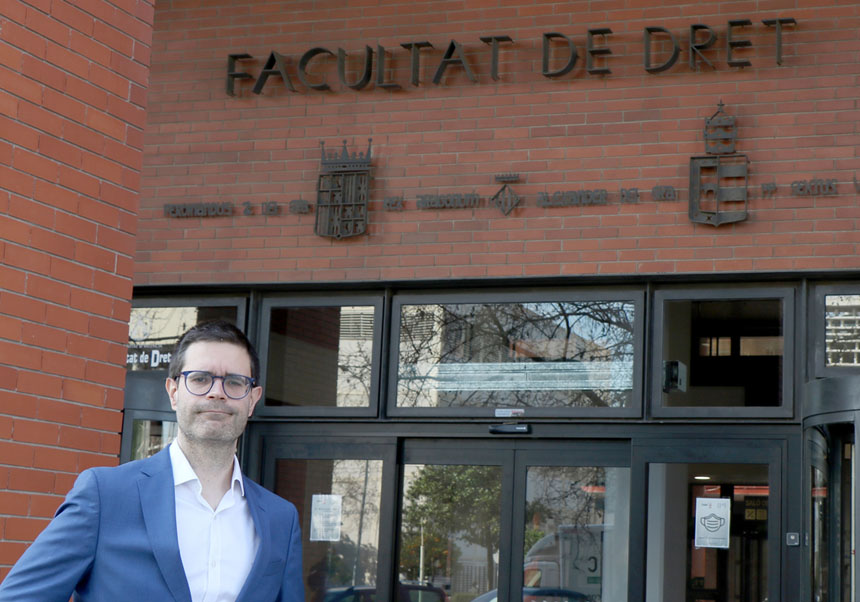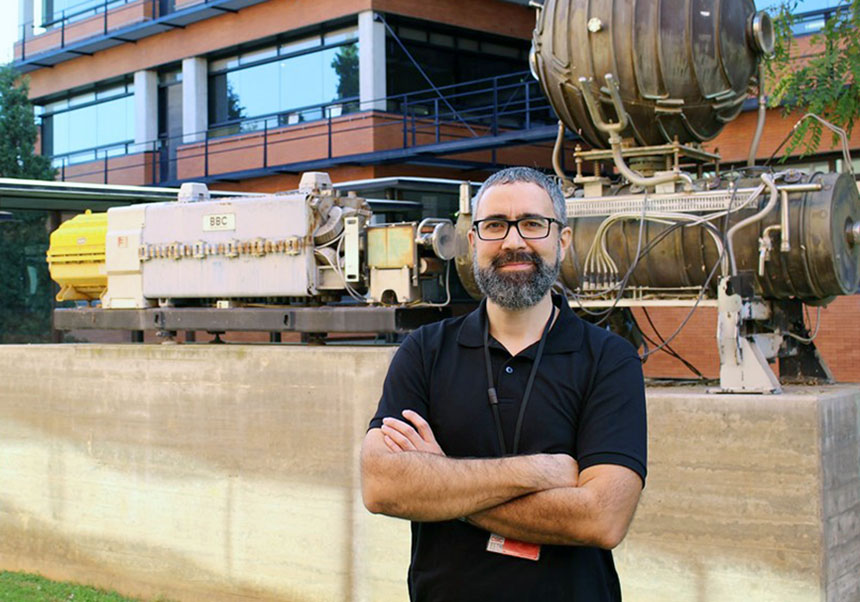Professor Adrián Todolí analyses the regulation of algorithms to improve labor organisation
- Scientific Culture and Innovation Unit
- April 19th, 2023

The professor of Labour Law at the University of Valencia (UV) Adrián Todolí analyses how the management of algorithms is altering the internal balance of the employment contract and what are the guidelines to follow for a better labour organisation. In his new book Algoritmos productivos y extractivos. Cómo regular la digitalización para mejorar el empleo e incentivar la innovación (‘Productive and Extractive Algorithms. How to regulate digitisation to improve employment and encourage innovation’), classifies algorithms as productive (to automate tasks that were previously performed by workers, simplifying their work or requiring less time to execute it) and extractive (which cause an increase in product through more effort).
“This book is not about the jobs that are going to disappear, but about the ones that are going to stay under the direction of an Artificial Intelligence. The algorithms are replacing workers who make decisions with workers who comply with what the algorithm decides”, explains Todolí.
In this sense, the research by the professor from the Faculty of Law reflects how the use of technologies to monitor and control workers is increasingly moving away from the original spirit of guaranteeing that workers comply with their obligations, to become managed in a much more aggressive way. “Businessmen have gone from making a defensive use of technology (verifying that workers comply with their obligations) to an offensive use of it (imposing greater obligations and risks on the worker)”, he adds.
During its 214 pages, the book analyses how the algorithm benefits and gives power to the company, which causes the reduction of the bargaining power of workers with its consequent worsening of individual working conditions and an unbalanced distribution of income generated in the job. Todolí also classifies algorithms into two groups, productive and extractive, a key fact for its regulation.
“With this diagnosis, it is argued that the regulation of algorithms cannot focus exclusively on issues of privacy and data protection as it has been up to now. Many more rights are at stake that must be protected (health, distribution of labour income, unionisation, political and economic freedoms, internal company democracy)”, reflects Professor Todolí. “Society’s greatest concern should not be that an algorithm takes your job, but that it takes your salary”, he said.















